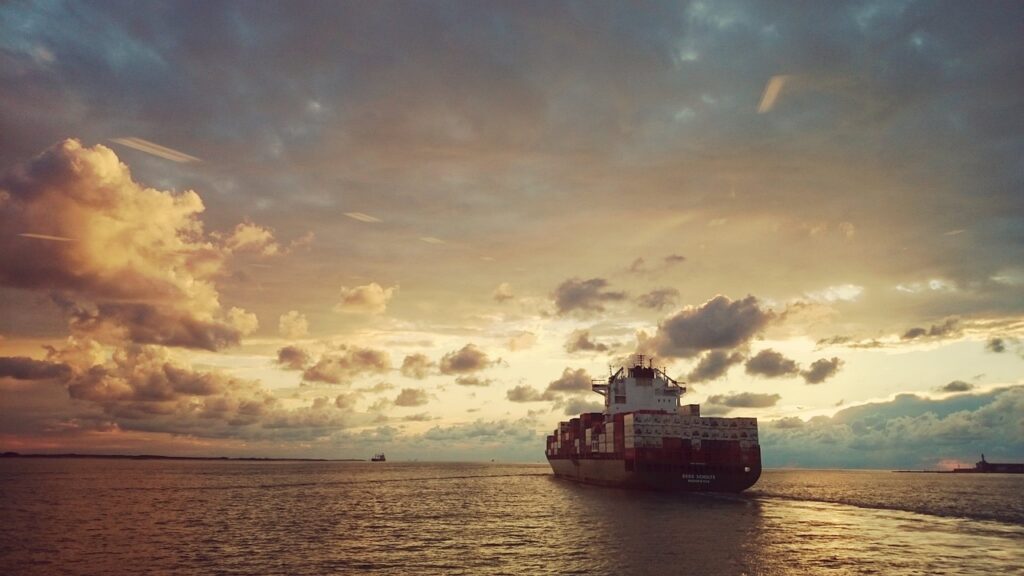The commitment goes on: MARPOL’s 50th anniversary and EDF’s multi-disciplinary approach to shipping decarbonization

Today marks the celebration of World Maritime Day. This year’s theme — ‘MARPOL at 50 — Our commitment goes on’. This theme spotlights the 50th anniversary of the International Convention for the Prevention of Pollution from Ships, and encourages discussions on the next phase of the International Maritime Organization’s work to promote a just transition to sustainable shipping.
The MARPOL Convention was adopted in response to a series of tanker accidents in 1976 and 1977 that caused millions of gallons of fuels to spill into our oceans. Since 1973, MARPOL has evolved into a fundamental aspect of the international framework for protecting oceans, and today, it covers the prevention of pollution from ships to the marine environment.
In keeping with the theme of Maritime World Day, Environmental Defense Fund is reflecting on its global shipping work one year into its consultative status at the IMO. Through engagement, collaboration and an array of scientific research, EDF has been a strong proponent of ambitious decarbonization targets, and of implementing solutions to achieve those targets in an equitable and just manner. The organization also advocates for specific mandates to adopt alternative means of propulsion and non-fossil-based fuels for the shipping sector to contribute to limiting global temperature increase to 1.5 degrees Celsius, compared to pre-industrial levels, in alignment with the Paris Agreement.
A New Strategy
If measured alongside countries, shipping would be among the top-ten worldwide greenhouse gas emitters. So, urgently phasing out its emissions is critical to limiting global warming.
The commitment goes on: MARPOL’s 50th anniversary and EDF's multi-disciplinary approach to shipping decarbonization Share on XThis summer was pivotal to this effort, as member states at the IMO negotiated a revised Strategy on the reduction of greenhouse gas emissions from ships, referred to as the 2023 strategy. Countries settled on greenhouse gas emission reduction checkpoints of up to 30% by 2030 and up to 80% by 2040, on a lifecycle basis. The IMO also set a timeline for the adoption of mid-term measures, such as a global greenhouse gas fuel standard and a greenhouse gas pricing mechanism to be implemented in 2027. While the commitment to reduce emissions could have been stronger, the agreement set a reachable pathway for a Paris-aligned decarbonization of the shipping sector.
To get to this point, EDF joined dozens of countries, businesses and NGOs at the IMO in London to help raise awareness and confidence in solutions, and advocate for a higher level of ambition in upcoming discussions. Part of this included highlighting the work of partner organizations in unlocking opportunities associated with shipping decarbonization in the Global South and engaging fuel producers and original equipment manufacturers in a Call to Action asking for a more ambitious revised greenhouse gas strategy.

Teamwork and a Multi-Disciplinary Approach
EDF’s expertise on fuels, finance, ports, health and communities lends to a multi-disciplinary approach to tackling shipping decarbonization. Through collaborative work with our experienced scientists and economists, EDF aims to highlight the gaps in knowledge of future fuels and technologies, and their implication for the maritime industry, ensuring that the development of sustainable marine fuels maintains the safety of communities and the environment as a top priority.
For shipping’s decarbonization to be done right, we must ensure through robust economic and operational measures that the energy transition is just and equitable, leaving no one behind. Engaging on the global stage at IMO and zooming in through projects in specific regions, countries and communities enables us to better understand the needs, perceptions, opportunities and implications on the ground. This is key to understanding the potential effects of proposed solutions to decarbonize the sector.
EDF has a long history of work and strong relationships with ports and port communities. In addition, it will soon be partnering with community representatives in the Caribbean region to co-design local shipping solutions that deliver benefits to communities on the frontline of climate change impacts. We recently expanded our work to U.S. seaports and are working collaboratively with partners on port decarbonization frameworks.
While policy, standards and regulations can encourage shipping’s energy transition, it has become evident that the sector cannot act alone. Over the past year, we have been working on engaging the finance sector in shipping decarbonization through ongoing investor briefing work. Financing the transition will enable industry to play a role in helping push the needle and align shipping with the 1.5 degrees Celsius global temperature limit.
Looking to the future
The adoption of IMO’s greenhouse gas strategy was crucial for shipping. It marked the beginning of the voyage towards clean shipping, with everyone onboard. EDF is committed to continue driving ambition, action and momentum by bringing cutting-edge science and community-led solutions to the shipping decarbonization conversation.










